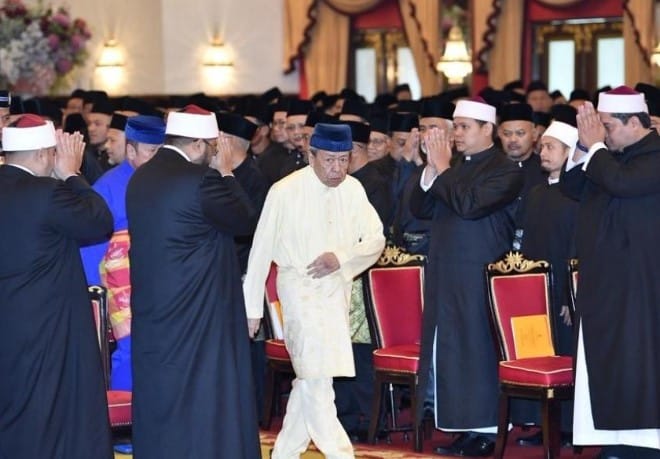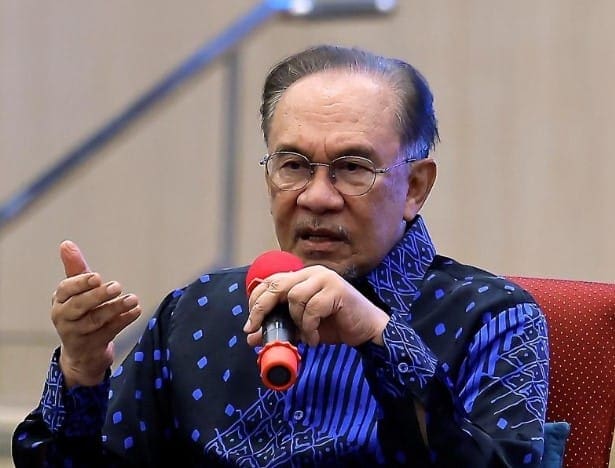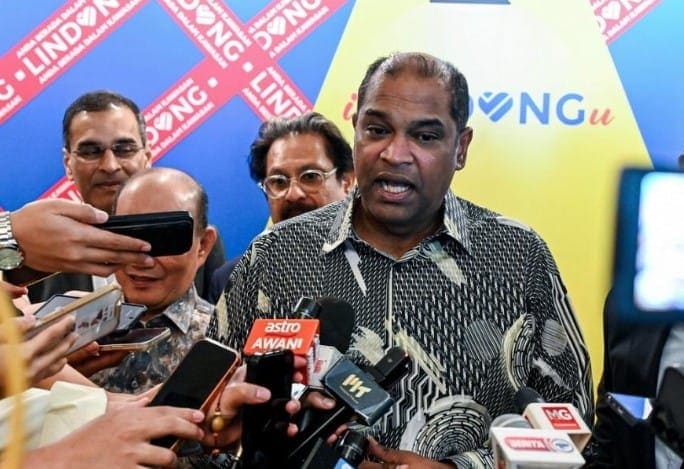
 KUALA LUMPUR, Jan 30 – After years of hearing from the annual Auditor-General’s report on wastage, over-spending and major procurement scandals in ministries, government agencies and government-led projects, and seeing nothing done to rectify the problems, there is hope now under the Pakatan Harapan government.
KUALA LUMPUR, Jan 30 – After years of hearing from the annual Auditor-General’s report on wastage, over-spending and major procurement scandals in ministries, government agencies and government-led projects, and seeing nothing done to rectify the problems, there is hope now under the Pakatan Harapan government.
The National Anti-Corruption Plan (NACP), a five-year framework aimed at eradicating corruption and improving governance, was launched by Prime Minister Tun Dr Mahathir Mohamad yesterday in an event that also saw the participation of opposition party leaders, PAS President Datuk Seri Abdul Hadi Awang and Umno Deputy President Datuk Seri Mohamad Hassan.
This focus on fighting corruption at every level of government was the reason why the NACP will now act as a guide for all government agencies to enhance integrity and good governance.
According to the document’s Statement of Commitment, the NACP is an anti-corruption policy that reflects the people’s expectations for a greater corrupt-free nation that promotes transparency, accountability and integrity in every Malaysians.
The Statement of Commitment was jointly issued by Chief Secretary to the Government Datuk Seri Dr Ismail Bakar, National Centre for Governance, Integrity and Anti-Corruption Director-General Tan Sri Abu Kassim Mohamed and Chief Commissioner of Malaysian Anti-Corruption Commission (MACC) Datuk Seri Mohd Shukri Abdull.
Demarcation of power between ministers and sec-gens
Citing the RM1.8 trillion lost by the government between 2005 and 2014 due to illicit financial flows, Mahathir said that the NACP also enforces a demarcation of power between ministers and secretaries-general.
“All of these are efforts to separate the government administration from the influence of politics. This is important to prevent any form of power abuse from happening.
“All quarters have a share in ensuring that the 115 initiatives become a reality.
“Civil society must also play its part by becoming the eyes and ears of the government. Please monitor and give feedback. Otherwise, what we hope for will not be realised,” he was quoted as saying by New Straits Times.
Six strategies, 115 initiatives, varying timelines
The 115 initiatives Mahathir spoke of comes under six key strategies under the NACP towards eradicating corruption.
The six strategies are strengthening political integrity and accountability; efficiency in the delivery of the public sector; improving the effectiveness and transparency in public procurement; improving the credibility of the judiciary and the legal system; institutionalising the credibility of law enforcement agencies and promoting good governance in corporate entities.
The initiatives comprise short-, medium- and long-term efforts and cover issues including political funding, electoral funding, use of government assets in elections, transparent redelineation process, and the issuance of support letters in applications and projects.
Under the NACP, this means that no heads of departments are obliged to act on or receive support letters as a form of instruction from anyone within the government administration.
Only properly qualified political appointments
Policies to specify the dos and don’ts on the appointment of politicians as chairmen or board of directors in GLCs, will also be put in place.
While stating it will be acceptable, the policy will guide the government on ensuring that the politicians must possess the relevant academic and professional qualification. This initiative is also expected to help circumvent political interference in the appointment of government positions and promotions.
Another strong initiative will see members of the judiciary not being allowed to take up any positions in corporate entities within three years after retirement.
On local governments, the NACP will introduce an initiative to monitor and limit the influence of politicians and individuals in the decision-making process involving local councils.
– NMT





More Stories
Socso’s Lindung 24/7 Scheme To Be Implemented By Mid-Year – Ramanan
Trade Performance, Year One Pupil Entry Among Focus Of Today’s Dewan Rakyat Sitting
President Putin Welcomes Sultan Ibrahim At Hermitage Museum